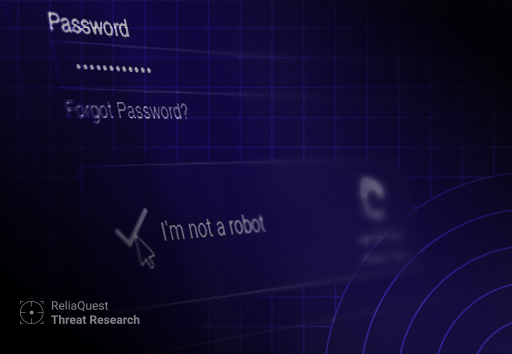Cybercriminals have found a new way to weaponize CAPTCHA and reCAPTCHA—the common security tests used to verify human users online. Instead of protecting websites, hackers are now using these verification tools to trick users into installing malware and info-stealing viruses on their own PCs.
If you’re not careful, you could unknowingly compromise your system just by clicking a checkbox. Here’s how hackers are using reCAPTCHA to deliver malware, plus essential cybersecurity tips to keep your device safe.
How Hackers Use reCAPTCHA to Trick Users
CAPTCHAs, also known as Completely Automated Public Turing Tests, are designed to distinguish humans from bots. You’ve probably encountered them while browsing, solving puzzles like identifying stop signs in images or checking a box labeled “I’m not a robot.”
However, cybercriminals are exploiting this familiar verification process in a new attack method called clipboard hijacking. This scheme manipulates users into running a malicious command that downloads and installs malware.
Clipboard Hijacking: How the Attack Works
According to Malwarebytes, this malware attack begins when a user visits a compromised website offering movies, music, images, or trending news. Since CAPTCHAs are common on legitimate sites, users don’t suspect anything unusual when prompted to verify they’re human.
Step-by-Step Breakdown of the Attack:
- Fake reCAPTCHA Prompt: The user sees an “I’m not a robot” checkbox on a malicious website.
- Deceptive Instructions: After clicking, they are asked to complete additional verification steps.
- Clipboard Hijack: The site secretly copies a malicious command to the user’s clipboard.
- Keyboard Shortcut Trick: The instructions tell the user to press Windows Key + R, then Ctrl + V, followed by Enter—unknowingly executing a dangerous script.
- Malware Installation: The script downloads and installs info-stealing malware, compromising the victim’s system.
What Malware Is Being Installed?
Once executed, the attack delivers dangerous cyber threats, including:
- Lumma Stealer – A powerful infostealer that extracts browser data, login credentials, 2FA codes, and cryptocurrency wallet details.
- SecTopRat – A remote access trojan (RAT) that grants hackers full control over an infected PC.
These stealthy malware programs allow cybercriminals to steal personal data, financial information, and sensitive files, potentially leading to identity theft and financial fraud.
How to Stay Safe from reCAPTCHA Malware Attacks
1. Be Cautious of CAPTCHA Requests on Unfamiliar Sites
- Large, well-known websites use reCAPTCHA for security, but smaller, lesser-known sites rarely require verification.
- If a website unexpectedly asks you to solve a CAPTCHA before accessing content, be skeptical.
2. Never Follow Unusual Verification Instructions
- Legitimate CAPTCHAs never ask you to enter keyboard shortcuts or commands.
- If a verification test requires you to press Windows + R or copy-paste something, close the site immediately.
3. Use Reliable Antivirus Software
- Install reputable antivirus software to detect and block malware before it can compromise your system.
- Keep your security software updated to stay protected against the latest threats.
4. Enable Browser Extensions for Cybersecurity
- Consider using a browser security extension to block malicious websites and phishing scams.
- Extensions like Malwarebytes Browser Guard or Bitdefender TrafficLight can provide an extra layer of protection.
5. Disable JavaScript for Maximum Protection (With Caution)
- Since clipboard hijacking relies on JavaScript execution, disabling it can prevent these attacks.
- However, turning off JavaScript may break many websites and impact usability.
- If you’re willing to take this step, Malwarebytes offers guides for disabling JavaScript in Chrome, Edge, Firefox, and Opera.
Final Thoughts: Stay Vigilant Against Cyber Threats
Cybercriminals continuously evolve their tactics, using CAPTCHAs and reCAPTCHAs as tools for deception. To protect yourself:
✅ Stay alert when browsing unknown sites
✅ Be cautious of unusual CAPTCHA verification steps
✅ Use strong cybersecurity software and browser extensions
✅ Keep up with the latest online threats
By practicing good cyber hygiene, you can avoid falling victim to these reCAPTCHA malware scams and keep your devices secure from cyberattacks.




